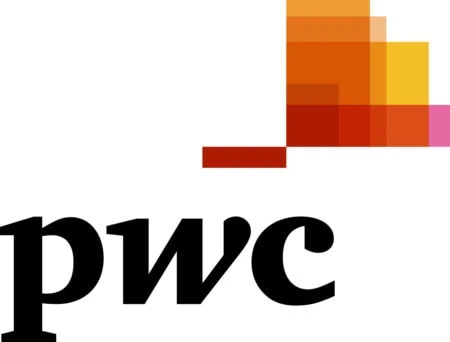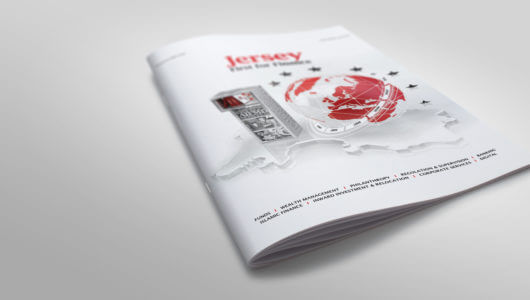The accountancy profession on the Island has a long established history, with the first association supporting practising accountants being formed in 1954 and has since evolved alongside the finance industry as it has become more sophisticated. As a result, the profession today offers a broad range of skills, including highly specialist and niche expertise in certain sectors, to support all aspects of the local industry.
For a small island, the local financial services industry is both well-established and broad, ranging from fund management and administration, to banking and capital markets, fiduciary and trust services, wealth management and other associated professional services. The local accountancy profession complements and supports all of these aspects of financial services with a comprehensive range of products, covering:
- Book-keeping and statutory record-keeping (company secretarial)
- Management reporting and statutory accounts preparation
- Audit and other assurance services
- Tax compliance, assistance and advice
- Accounting and regulatory advice and support
- Controls reporting and assurance
- Business improvement reviews and liquidations
- Forensic services, fraud recoveries, AML investigations and remediation
- System testing, IT vendor selection, data assurance
- Project and performance management and assurance
- Listing services
- Transaction services, due diligence and structuring advice
The depth of accountancy expertise the jurisdiction can offer is impressive too. As well as the ‘Big 4’ accountancy firms, a number of medium-sized international firms and smaller local providers also have offices in the Island. Beyond the accountancy firms themselves, the profession has trained many of the individuals now working either directly for regulated financial services firms or who are acting as consultants to the industry.
High standards
In the post-financial crisis period, the role of the profession has been placed under considerable scrutiny and the need for highly skilled, experienced and reputable professional support has never been higher.
The capabilities of the accountancy profession has been a mainstay of the Island’s finance industry, providing essential support over the years to the different sectors. This has been down in large part to the extremely high global standards the local industry can demonstrate.
For instance, the local profession is regulated by the Jersey Financial Services Commission (JFSC), who in turn delegates much of this supervisory responsibility to the Institute of Chartered Accountants in England and Wales (ICAEW) and the Financial Reporting Council (FRC), the UK’s bodies for regulating accountants. As a result, the same high standards are maintained here in the Island as would be the case in the UK. In addition, many local firms are subject to regular inspection from their own international networks to ensure that they also fully comply with network standards.
The Jersey Society for Chartered and Certified Accountants (JSCCA) is the local profession’s representative body and in its current guise has been around since 1974. With a membership of approximately 750 individual accountants from across all aspects of the profession, the key roles of the JSCCA are to promote and serve the accountancy profession, encourage cooperation and provide a forum for discussion between members, communicate with the Jersey authorities and other professional bodies and promote high standards of professional conduct.
The JSCCA has always had a close relationship with its respective professional institutes in the UK, in particular the London & District Society of Chartered Accountants. A key benefit of maintaining such valuable links is to keep close to emerging themes impacting the profession.
Furthermore, the JSCCA maintains close links with its Guernsey counterpart, the GSCCA, since the respective societies’ inceptions, hosting events to both encourage and identify key areas of cooperation.
The JSCCA operates through an Executive Committee, which meets monthly and receives reports from its operational sub-committees (accounting regulation, technical, training and tax).
Supporting a local workforce with the necessary skills and providing access to training opportunities, is a core part of the JSCCA’s remit and – through its training sub-committee – the JSCCA provides regular updates on topical and emerging issues and changes in accounting standards.
For those members who are not part of a firm with its own structured training programme, the training sub-committee also coordinates a two day conference annually to enable members to keep up with their obligations in relation to Continuing Professional Development (CPD). This is a highly popular event which is attended by approximately 300 industry professionals and culminates in a black tie dinner and awards evening.
Moreover, as part of the JSCCA’s commitment to supporting the future sustainability of the profession in the Island, it is also proud of its well-established bursary scheme which supports students in gaining a university education before returning to Jersey to join the accountancy profession. Since 2010, a total of 17 individuals have benefitted from this scheme, earning awards of up to £5,000 per year to support them through their studies.
An evolving profession
The environment in which Jersey’s accountancy profession operates today is truly global and sophisticated. Whilst there is significant demand for the services offered by local accounting professionals, this increasingly complex landscape means that there are also a number of challenges that the profession faces.
For instance, with growing demand for the services detailed above, there is a challenge to recruit and retain individuals with the right skills and experience. With the training and experience that accountants receive, there is high demand in the industry for those individuals and therefore a constant need for accountancy firms to maintain a pipeline of recruits with the right skills and/or train staff to develop those skills.
Rising levels of regulation across the finance industry as a whole also impact the accountancy profession directly. In particular, enhancements to auditing standards and independence requirements, the implementation of the Statutory Audit Directive and the Recognised Auditor Regime, as well as the move from self-regulation to external independent regulation, have all had an impact on the profession, not only in terms of an increase in audit quality but also regarding a corresponding increase in compliance costs.
Given the increasingly global nature of Jersey’s role as an IFC, the accountancy profession has also had to keep pace with its understanding of relevant international standards, their implications and better coordination between jurisdictions. The broader reach of US, European and UK regulation provides a number of examples of this impact.
In addition, we are seeing a significant rise in demand for services and increased obligations on the profession as a result of anti-money laundering standards and broader tax and regulatory arrangements, such as FATCA, CRS and country-by-country reporting. Jersey has been very proactive in its approach to the global transparency agenda and with the local industry wanting – quite rightly – to maintain the highest ethical standards as well as quality standards, accountancy professionals have increasingly needed to be right at the top of their game in this area.
Meanwhile, increasing technological change is set to create significant opportunities in terms of efficiencies and enhancing client support, whilst at the same time also presenting certain challenges in keeping up with the pace of change and managing the costs of implementation. Clearly, for clients and staff alike, it is absolutely crucial to be able to deliver consistently high quality services in an increasingly connected and technologically advanced manner. In common with much of the broader financial services industry, the profession is therefore seeing an increasing trend towards buyer power, and a squeeze on fees, so finding the right balance between maintaining high standards of quality and client service, whilst managing costs, has been particularly difficult in the current economic climate.
So, whilst the unerring forces of globalisation and rapid technological enhancements present both challenges and opportunities, the profession in Jersey continues to be quick to adapt. With the support of multinational networks through to locally owner-managed firms providing a powerful blend of international expertise and nimbleness, the profession, together with the JSCCA, will continue to play a key role in supporting the wider financial services industry and, as we navigate through a period of unprecedented change, ensure Jersey maintains its position as a leading specialist centre of international financial services.
James de Veulle, Executive Committee Member, Jersey Society of Chartered and Certified Accountants (JSCCA).
James de Veulle (FCCA) is a director in PwC’s Assurance practice in Jersey, and leads the Channel Islands Banking practice and structured finance team. He has more than 20 years of experience in the industry, delivering audits to a broad range of financial services clients in banking, capital markets, asset management and fiduciary industries.
In addition to core audit services, James also leads on other assurance services (such as controls reporting), and provides advisory services in areas such as compliance, regulatory and process improvement.
Prior to moving back to Jersey in 2007, James worked for nine years in PwC’s Banking & Capital Markets division in London, gaining broad experience on investment banking clients, broker dealers and other capital market institutions, leading multinational teams and working with clients during IFRS transitions, US GAAP conversions and preparation for SEC listings.
James has been on the Executive Committee of the JSCCA for the last three years, during which time he has also chaired the training sub-committee. Previously, James also served on the Jersey Funds Association committee for four years.


